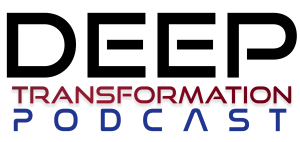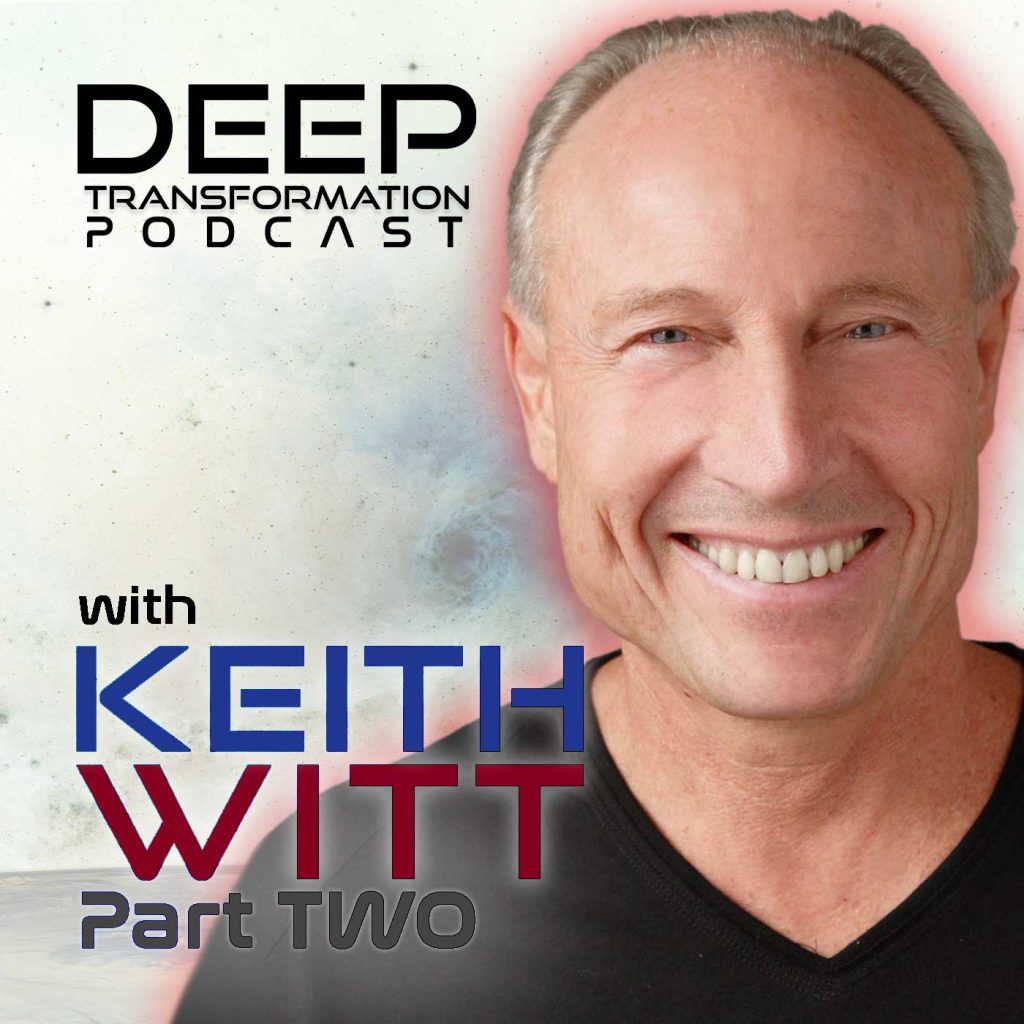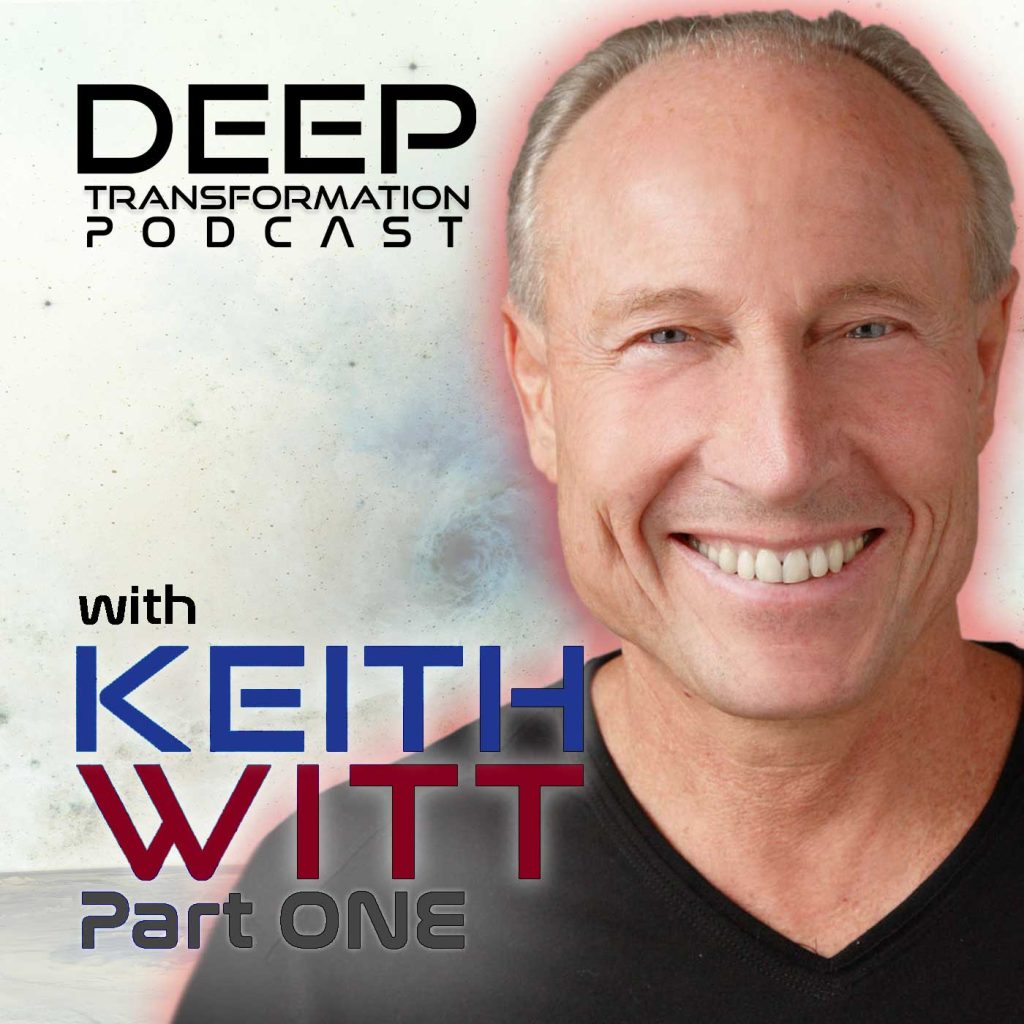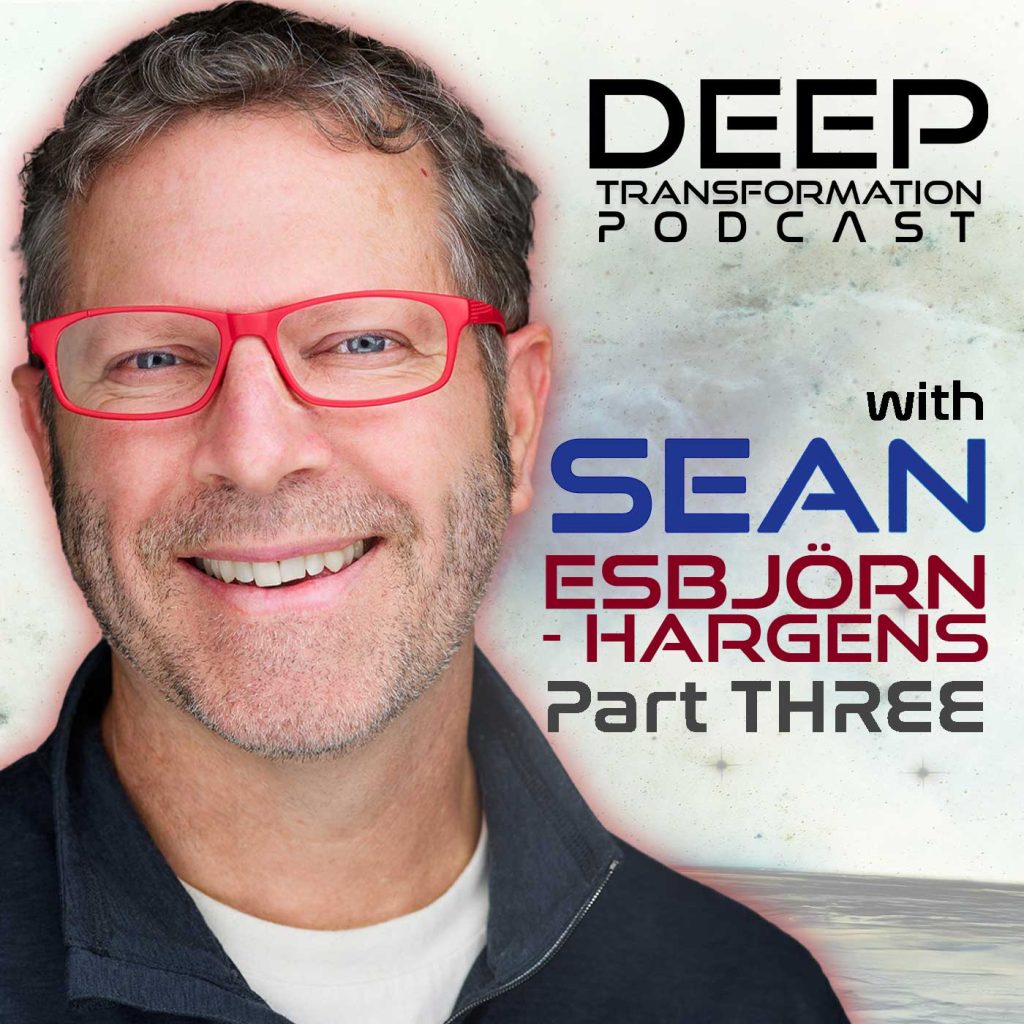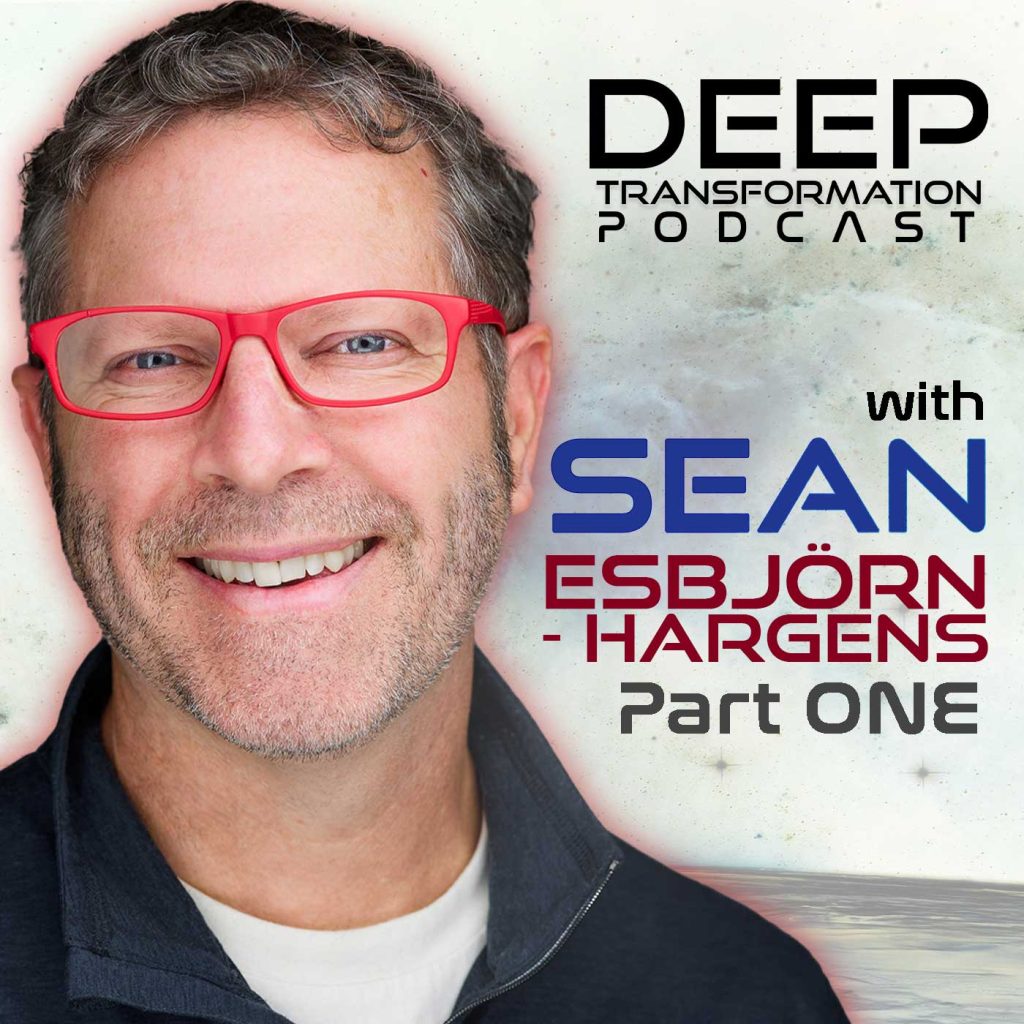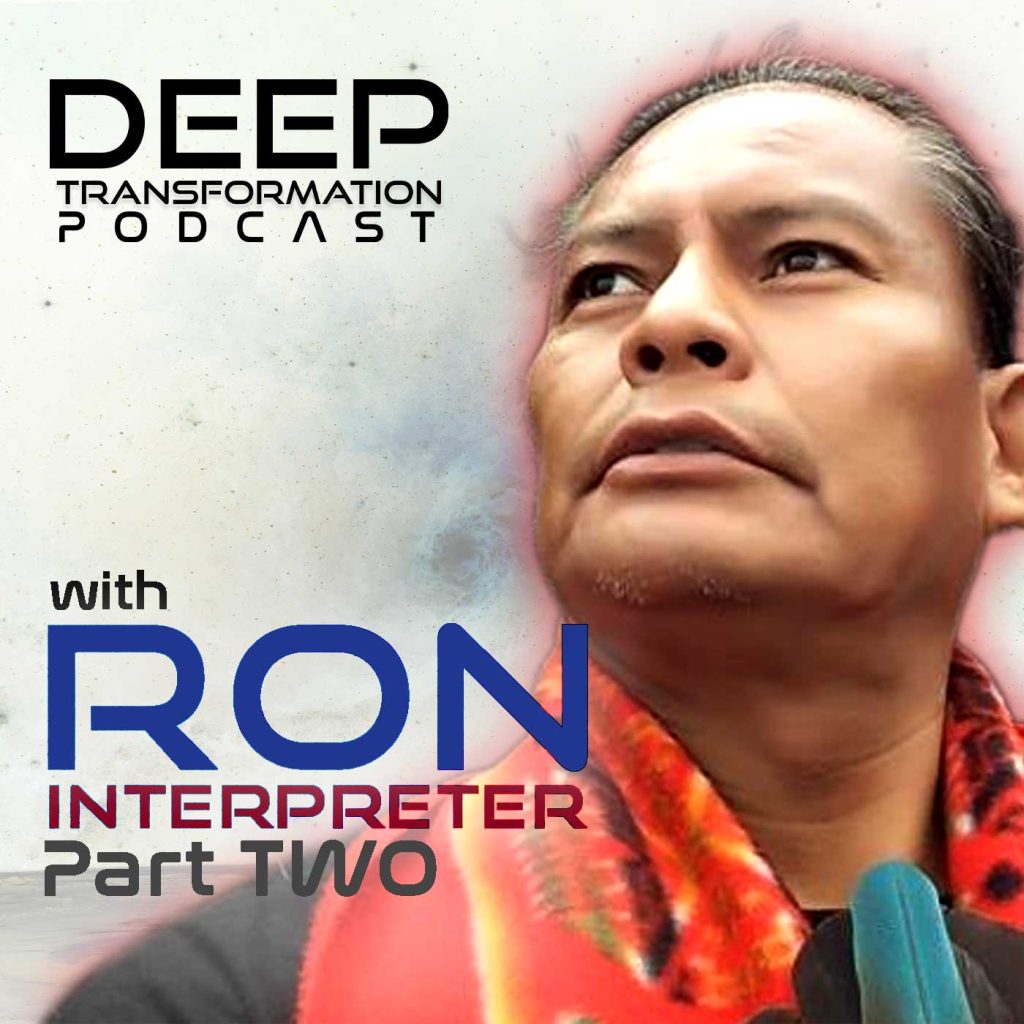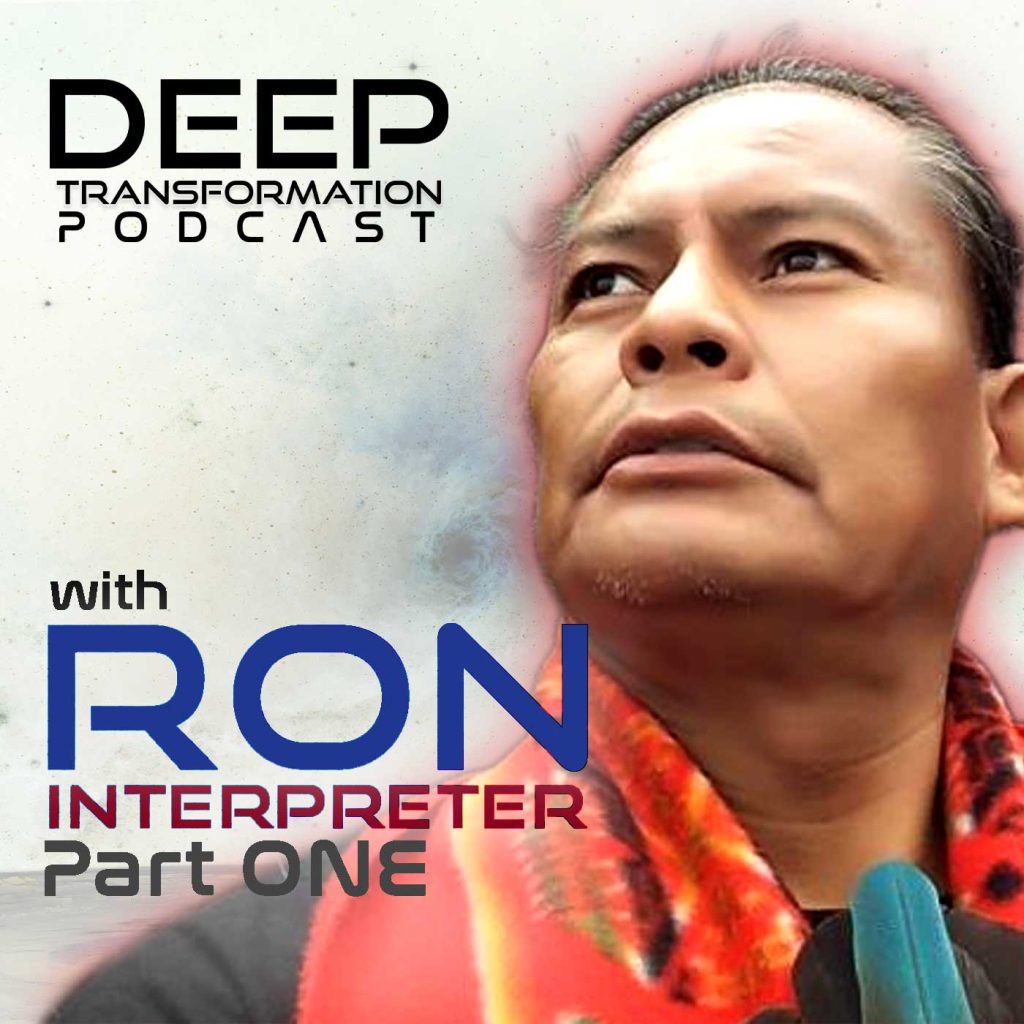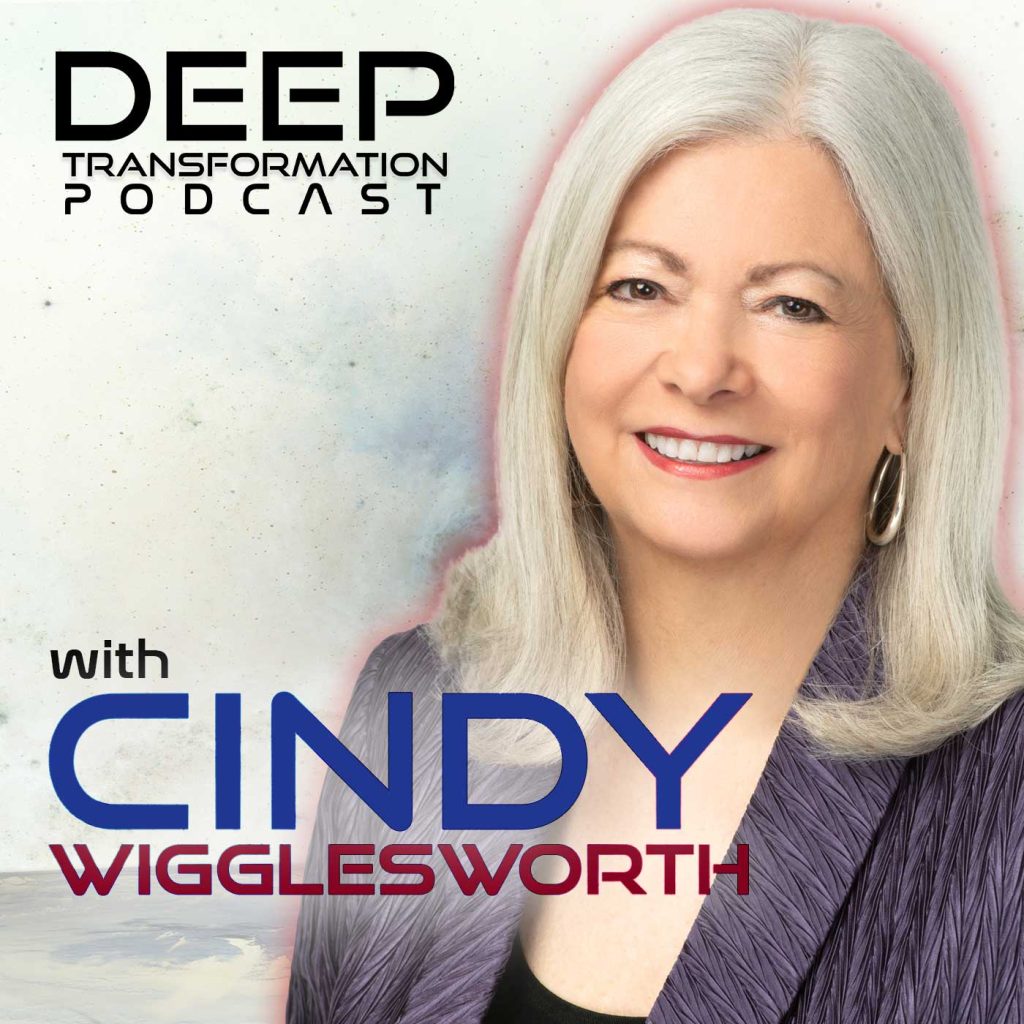Integral Theory
(Part 2) The Way of Spiritual Discernment: Attuning to Inner Guidance to Serve Oneself & the World with Fr. David McCallum, SJ
“Disasters and oppression today are by-products of a spiritual crisis… We don’t see the unity of all.”
Ep. 203 (Part 2 of 2) | In this rich, delightful, and profound conversation, Integral Theory informed Father David McCallum, SJ, currently serving the Catholic Church as executive director of the Program for Discerning Leadership, leads us into a world filled with mission, purpose, and service, foundational to which is the practice of discernment. David describes discernment as the capacity to exercise good judgment, hold complexity, and wait for clarity. This is not only a practice for individuals, he explains, but also a communal one, providing a way for communities to discern and design together the future they want to create—through listening, dialoguing, participating. Discernment is a way of knowing and making sense of reality, David continues, and especially important now in this era of changes and choices to be made.
David enlightens us as to the beautiful and far-sighted reforms proposed by the late Pope Francis, who was all for changing the balance of authority and participation in the Church; for people to have direct experience of Presence and the capacity to practice discernment; who also advocated for taking swift action on behalf of our planet, even calling out the part in the Bible that says man has dominion over the Earth. From David’s description of “the journey worth making”—surrendering, opening, accepting divine grace and love—to using Otto Scharmer’s U Process to help find the courage to change and simplify our lives for the benefit of all, to the Church’s relationship with A.I., David provides us with an extraordinarily mind-broadening, motivating, and spiritually fulfilling perspective. Recorded July 10, 2025.
Read MoreThe Way of Spiritual Discernment: Attuning to Inner Guidance to Serve Oneself & the World with Fr. David McCallum, SJ (Part 1)
“No secular, material, and empirical path is going to satisfy the longing we have for a transcendent purpose, for meaning, for existential belonging, in the ways that a healthy spirituality can.”
Ep. 202 (Part 1 of 2) | In this rich, delightful, and profound conversation, integralist Father David McCallum, SJ, currently serving the Vatican as executive director of the Program for Discerning Leadership, leads us into a world filled with mission, purpose, and service, foundational to which is the practice of discernment. David describes discernment as the capacity to exercise good judgment, hold complexity, and wait for clarity. This is not only a practice for individuals, he explains, but also a communal one, providing a way for communities to discern and design together the future they want to create—through listening, dialoguing, participating. Discernment is a way of knowing and making sense of reality, David continues, and especially important now in this era of changes and choices to be made.
David enlightens us as to the beautiful and far-sighted reforms proposed by the late Pope Francis, who was all for changing the balance of authority and participation in the Church; for people to have direct experience of Presence and the capacity to practice discernment; who also advocated for taking swift action on behalf of our planet, even calling out the part in the Bible that says man has dominion over the Earth. From David’s description of “the journey worth making”—surrendering, opening, accepting divine grace and love—to using Otto Scharmer’s U Process to help find the courage to change and simplify our lives for the benefit of all, to the Church’s relationship with A.I., David provides us with an extraordinarily mind-broadening, motivating, and spiritually fulfilling perspective. Recorded July 10, 2025.
Read More(Part 2) Assault on Democracy: The Legal, Ethical & Spiritual Implications of America’s Democratic Crisis with Mark Fischler
“The assault on democracy we are experiencing is also an assault on a spiritual understanding of the deeper nature of our existence.”
Ep. 192 (Part 2 of 2) | Professor Mark Fischler, constitutional law expert and co-host of the Integral Justice Warrior podcast, helps us make sense of what’s happening to our democracy, providing context—historical, legal, ethical—for the plethora of disturbing and destructive acts occurring on a daily basis in our political arena. The rule of law is under direct attack at this time, he explains, and an assault on democracy is essentially an assault on our most fundamental values—the principles this country was founded on: inclusivity, equality, and dignity for all.
Mark clarifies President Trump’s political actions in the context of developmental stages, unpacks Project 2025, and discusses the assault on higher education and critical thinking and what it portends. The trajectory of where we are headed, Mark points out, is regressing into values we have already transcended. We need our democratic foundation to move to deeper, post-democratic levels that are reflective of greater levels of interconnection and inclusivity—not the opposite, he says. What will it take to change the regressive trajectory? Courage! And involvement. Thank you, Mark, for bringing a rare depth and much-needed clarity to the subject of the evolving democratic crisis occurring in our nation today and its implications for our future. Recorded June 12, 2025.
Read MoreAssault on Democracy: The Legal, Ethical & Spiritual Implications of America’s Democratic Crisis with Mark Fischler (Part 1)
“The rule of law is a hard-earned process… and it’s under direct attack at this time in our country.”
Ep. 191 (Part 1 of 2) | Professor Mark Fischler, constitutional law expert and co-host of the Integral Justice Warrior podcast, helps us make sense of what’s happening to our democracy, providing context—historical, legal, ethical—for the plethora of disturbing and destructive acts occurring on a daily basis in our political arena. The rule of law is under direct attack at this time, he explains, and an assault on democracy is essentially an assault on our most fundamental values—the principles this country was founded on: inclusivity, equality, and dignity for all.
Mark clarifies President Trump’s political actions in the context of developmental stages, unpacks Project 2025, and discusses the assault on higher education and critical thinking and what it portends. The trajectory of where we are headed, Mark points out, is regressing into values we have already transcended. We need our democratic foundation to move to deeper, post-democratic levels that are reflective of greater levels of interconnection and inclusivity—not the opposite, he says. What will it take to change the regressive trajectory? Courage! And involvement. Thank you, Mark, for bringing a rare depth and much-needed clarity to the subject of the evolving democratic crisis occurring in our nation today and its implications for our future. Recorded June 12, 2025.
Read MoreKeith Witt (Part 2) – Relationship’s Farther Reaches: Exploring the Potentials of Loving, Learning, and Growing Together
Ep. 169 (Part 2 of 2) | Integral psychologist Keith Witt can’t get enough of the magic and beauty that happens in relationships as people begin to develop what he calls “a post-issue consciousness.” He explains that when our executive self, our wise self or witness, kicks in and forges a caring connection with the places where we hold our hurt and our traumas, then integration and healing start to happen, eventually with almost no conscious energy expenditure. “My job is to help people develop the witness,” Keith says, so they can observe their defensive or destructive states and reach for compassionate understanding, for themselves, for their partner, and for others.
Keith tells us the three foundations of the modern marriage are friendship, a love affair, and an ability to resolve issues that come up, and says the shift to a post-issue relationship happens when all three facets become intentional. “Post-issue couples don’t let things get in the way of their love,” he says. Throughout the conversation, Keith shares a goldmine of therapeutic wisdom on the subject of relationships, including the client/therapist relationship, and in true Integral fashion, he includes perspectives from all sorts of interesting angles, such as our evolutionary development, neural development, and moral and spiritual development. This discussion is warm, friendly, cheerful, lively, and chock full of useful information and insights. Keith’s excitement about the evolutionary directionality of human relationships is contagious and inspiring. Recorded August 16, 2024.
Read MoreKeith Witt (Part 1) – Relationship’s Farther Reaches: Exploring the Potentials of Loving, Learning, and Growing Together
Ep. 168 (Part 1 of 2) | Integral psychologist Keith Witt can’t get enough of the magic and beauty that happens in relationships as people begin to develop what he calls “a post-issue consciousness.” He explains that when our executive self, our wise self or witness, kicks in and forges a caring connection with the places where we hold our hurt and our traumas, then integration and healing start to happen, eventually with almost no conscious energy expenditure. “My job is to help people develop the witness,” Keith says, so they can observe their defensive or destructive states and reach for compassionate understanding, for themselves, for their partner, and for others.
Keith tells us the three foundations of the modern marriage are friendship, a love affair, and an ability to resolve issues that come up, and says the shift to a post-issue relationship happens when all three facets become intentional. “Post-issue couples don’t let things get in the way of their love,” he says. Throughout the conversation, Keith shares a goldmine of therapeutic wisdom on the subject of relationships, including the client/therapist relationship, and in true Integral fashion, he includes perspectives from all sorts of interesting angles, such as our evolutionary development, neural development, and moral and spiritual development. This discussion is warm, friendly, cheerful, lively, and chock full of useful information and insights. Keith’s excitement about the evolutionary directionality of human relationships is contagious and inspiring. Recorded August 16, 2024.
Read MoreSean Esbjörn-Hargens (Part 3) – The Boundless Riches of Nonduality: Understanding Nondual Experiences Across Traditions and Over Time
Ep. 157 (Part 3 of 3) | Integral polymath Sean Esbjörn-Hargens is the first comparative scholar to undertake exploring and differentiating the myriad varieties of nonduality. A longtime spiritual practitioner within several nondual traditions, Sean wanted to find out how we can understand the relationship between reality, consciousness, and practice. When he delved into an analysis of different traditions’ experience of nonduality, Sean was surprised and excited by what he found: 40 distinct nondual traditions, ancient and new, from both East and West, fascinating in their differences, their similarities, their uniqueness, and their depth. Sean’s hope is that his comparative study of nondual traditions will open the door to a global, cross-tradition dialogue that will supersede centuries of misunderstanding and conflict among people arguing that their realization is the only correct and/or best interpretation of reality.
Enthusiasm and excitement flow throughout the conversation as Sean reveals the provocative patterns he uncovered in nonduality’s history, like the mysterious flourishing of nondual traditions for a 300-year period starting in the 11th century. He covers specific distinctions he has mapped: the primary polarities across traditions (goal, path, context, practices), the different qualities that are emphasized (emptiness + omnipresence, emptiness + bliss, and more), and the six possible subject/object orientations of the traditions. Informed by A. H. Almaas’ awareness that there is no endpoint to spiritual realizations and Ken Wilber concluding that nonduality evolves (nonduality = emptiness + view; emptiness doesn’t change, but view does), along with his own findings of ever deepening and broadening nondual realizations, Sean wonders, “What will our nondual traditions look like in a thousand years? In two thousand years?” And, “What are some of the nondual seeds from other traditions that we are not watering?” Hang on to your hats for a thoroughly enjoyable and eye opening ride through a goldmine of information about the many faces of our nondual traditions. Recorded September 12, 2024.
Read MoreSean Esbjörn-Hargens (Part 2) – The Boundless Riches of Nonduality: Understanding Nondual Experiences Across Traditions and Over Time
Ep. 156 (Part 2 of 3) | Integral polymath Sean Esbjörn-Hargens is the first comparative scholar to undertake exploring and differentiating the myriad varieties of nonduality. A longtime spiritual practitioner within several nondual traditions, Sean wanted to find out how we can understand the relationship between reality, consciousness, and practice. When he delved into an analysis of different traditions’ experience of nonduality, Sean was surprised and excited by what he found: 40 distinct nondual traditions, ancient and new, from both East and West, fascinating in their differences, their similarities, their uniqueness, and their depth. Sean’s hope is that his comparative study of nondual traditions will open the door to a global, cross-tradition dialogue that will supersede centuries of misunderstanding and conflict among people arguing that their realization is the only correct and/or best interpretation of reality.
Enthusiasm and excitement flow throughout the conversation as Sean reveals the provocative patterns he uncovered in nonduality’s history, like the mysterious flourishing of nondual traditions for a 300-year period starting in the 11th century. He covers specific distinctions he has mapped: the primary polarities across traditions (goal, path, context, practices), the different qualities that are emphasized (emptiness + omnipresence, emptiness + bliss, and more), and the six possible subject/object orientations of the traditions. Informed by A. H. Almaas’ awareness that there is no endpoint to spiritual realizations and Ken Wilber concluding that nonduality evolves (nonduality = emptiness + view; emptiness doesn’t change, but view does), along with his own findings of ever deepening and broadening nondual realizations, Sean wonders, “What will our nondual traditions look like in a thousand years? In two thousand years?” And, “What are some of the nondual seeds from other traditions that we are not watering?” Hang on to your hats for a thoroughly enjoyable and eye opening ride through a goldmine of information about the many faces of our nondual traditions. Recorded September 12, 2024.
Read MoreSean Esbjörn-Hargens (Part 1) – The Boundless Riches of Nonduality: Understanding Nondual Experiences Across Traditions and Over Time
Ep. 155 (Part 1 of 3) | Integral polymath Sean Esbjörn-Hargens is the first comparative scholar to undertake exploring and differentiating the myriad varieties of nonduality. A longtime spiritual practitioner within several nondual traditions, Sean wanted to find out how we can understand the relationship between reality, consciousness, and practice. When he delved into an analysis of different traditions’ concept of nonduality, Sean was surprised and excited by what he found: 40 distinct nondual traditions, ancient and new, from both East and West, fascinating in their differences, their similarities, their uniqueness, and their depth. Sean’s hope is that his comparative study of nondual traditions will open the door to a global, cross-tradition dialogue that will supersede centuries of misunderstanding and conflict among people arguing that their realization is the only correct and/or best interpretation of reality.
Enthusiasm and excitement flow throughout the conversation as Sean reveals the provocative patterns he uncovered in nonduality’s history, like the mysterious flourishing of nondual traditions for a 300-year period starting in the 11th century. He covers specific distinctions he has mapped: the primary polarities across traditions (goal, path, context, practices), the different qualities that are emphasized (emptiness + omnipresence, emptiness + bliss, and more), and the six possible subject/object orientations of the traditions. Informed by A. H. Almaas’ awareness that there is no endpoint to spiritual realizations and Ken Wilber concluding that nonduality evolves (nonduality = emptiness + view; emptiness doesn’t change, but view does), along with his own findings of ever deepening and broadening nondual realizations, Sean wonders, “What will our nondual traditions look like in a thousand years? In two thousand years?” And, “What are some of the nondual seeds from other traditions that we are not watering?” Hang on to your hats for a thoroughly enjoyable and eye opening ride through a goldmine of information about the many faces of our nondual traditions. Recorded September 12, 2024.
Read MoreRon Interpreter (Part 2) – Ancestral Wisdom for Spirituality, Recovery & Life: An Integration of Native Traditions, Psychedelic Experiences & Integral Theory
Ep. 152 (Part 2 of 2) | Life coach, recovery coach, and plant medicine ceremonialist Ron Interpreter has created a multidimensional, whole person healing modality that integrates Navajo spiritual teachings and traditions with Ken Wilber’s Integral Model and Integral spirituality. Humanity is shifting, Ron explains, and is now looking to the teachings of the ancestors and Indigenous practices that can bring a sense of authenticity, purpose, and meaning to our lives. Native spirituality teaches us how we can relate to the elements of earth, fire, water and air in terms of remedies and medicines, and also in terms of beliefs and emotional connections. Plant medicine and other mind-altering ceremonies provide us with the means to get beyond the psychological limitations we put on ourselves, attain higher states of consciousness, and receive answers to our deepest questions.
With a calm, articulate fervency, Ron shares the ancestral wisdom he teaches to people in recovery or who are suffering from trauma, including special ops forces and veterans: the Native concepts of taking responsibility, being accountable, forging a relationship with God or Spirit, and living from a profound understanding of what it means to be a human being. “We are in the creation of self—how do we practice our selves?” Ron asks. The Indigenous teachings that Ron brings forward provide a deep sense of grounding in Nature and Spirit, as we come to a better understanding of our place in the universe and the practices that can open us up to living in a sacred way, in connection with divine being. Recorded August 1, 2024.
Read MoreRon Interpreter (Part 1) – Ancestral Wisdom for Spirituality, Recovery & Life: An Integration of Native Traditions, Psychedelic Experiences & Integral Theory
Ep. 151 (Part 1 of 2) | Life coach, recovery coach, and plant medicine ceremonialist Ron Interpreter has created a multidimensional, whole person healing modality that integrates Navajo spiritual teachings and traditions with Ken Wilber’s Integral Model and Integral spirituality. Humanity is shifting, Ron explains, and is now looking to the teachings of the ancestors and Indigenous practices that can bring a sense of authenticity, purpose, and meaning to our lives. Native spirituality teaches us how we can relate to the elements of earth, fire, water and air in terms of remedies and medicines, and also in terms of beliefs and emotional connections. Plant medicine and other mind-altering ceremonies provide us with the means to get beyond the psychological limitations we put on ourselves, attain higher states of consciousness, and receive answers to our deepest questions.
With a calm, articulate fervency, Ron shares the ancestral wisdom he teaches to people in recovery or who are suffering from trauma, including special ops forces and veterans: the Native concepts of taking responsibility, being accountable, forging a relationship with God or Spirit, and living from a profound understanding of what it means to be a human being. “We are in the creation of self—how do we practice ourselves?” Ron asks. The Indigenous teachings that Ron brings forward provide a deep sense of grounding in Nature and Spirit, as we come to a better understanding of our place in the universe and the practices that can open us up to living in a sacred way, in connection with divine being. Recorded August 1, 2024.
Read MoreCindy Wigglesworth – Spiritual Intelligence: 21 Skills That Underlie Our Capacities for Wisdom, Compassion & Love in Action
Cindy Wigglesworth, trailblazer in the field of spiritual intelligence, has created an assessment tool that identifies our spiritual strengths and weaknesses—qualities that fall outside the traditional IQ or emotional intelligence (EQ) parameters—in order to provide a guide for determining which skills we as individuals need to develop in order to show up in the world as love in action. Early on, Cindy recognized the profound benefits that both spiritual practice and EQ assessments had in her leadership development work, wishing only there was a map similar to what EQ offers but going one step higher, to lead people in the realm of spiritual development. So she created a multidimensional self-assessment tool to do just that, wrote the book SQ21: The 21 Skills of Spiritual Intelligence, and founded the global leadership development network Deep Change.
Cindy’s dedication, brilliant intellect, integral understanding, and the effects of a lifetime of spiritual motivation and practice are abundantly evident in this warmly personal, articulate, and inspiring conversation about spirituality and how we can come to embody the values we aspire to. It’s easy to love people in the abstract, Cindy points out, but how we actually behave is what’s critical. What would love see? she asks, when talking about the practice of reframing. As co-host John Dupuy said, this conversation is like “an infusion of spiritual vitamins.” It’s also very timely—Cindy reflects that spiritual intelligence skills and learning how to sustain faith are more important than ever in these times of polarization and crisis. Recorded July 18, 2024.
Read MoreKeith Martin-Smith (Part 3) – The Wonderful Ideals But Flawed Applications of DEI: Intolerant Tolerance, Undiverse Diversity, Unliberal Liberalism, and More
Ep. 147 (Part 3 of 3) | Award-winning author, Zen priest and teacher, Kung Fu master, and professional advisor and trainer, Keith Martin-Smith, took a good look at the diversity, equity, and inclusion movement when he began to notice the damage it was causing people he knew under the guise of progress, or equity. Putting his keen mind to the task, Keith identified seven key areas where the DEI movement goes markedly astray from the values it aspires to. Coming from an integral understanding, Keith does more than simply point out where the movement has backfired. We learn that postmodern thinking is how we became aware of the “subtle soup of racism [and bias] in the cultural field itself”—beyond the concrete, obvious social injustices that activists fought in the 20th century. This more subtle field of bias is responsible for the inequalities we see in society today, which is what the DEI movement would like to tear down. But the ways in which DEI acts to make this happen, ironically, are characterized by exactly the things that DEI is against: intolerance, inequity, undiversity, tribalism, and anti-liberalism.
In his wise, articulate, and gracious way, Keith makes sense of why the diversity, equity, and inclusion movement has become a political flashpoint, raising the hackles of not only rightwing conservatives but also liberal progressives. Sympathetic to the values of DEI, Keith is all about helping to create a more diverse, equitable, and inclusive movement. When asked how the values of DEI could be fulfilled to make it the harmonious, effective, correcting movement it aspires to be, Keith responded, “with conversations like this, for one thing,” adding, “we need to realize that everyone has a portion of truth—we just need to connect everyone’s portion of truth with their heart.” Recorded June 6, 2024.
Read MoreKeith Martin-Smith (Part 2) – The Wonderful Ideals But Flawed Applications of DEI: Intolerant Tolerance, Undiverse Diversity, Unliberal Liberalism, and More
Ep. 146 (Part 2 of 3) | Award-winning author, Zen priest and teacher, Kung Fu master, and professional advisor and trainer, Keith Martin-Smith, took a good look at the diversity, equity, and inclusion movement when he began to notice the damage it was causing people he knew under the guise of progress, or equity. Putting his keen mind to the task, Keith identified seven key areas where the DEI movement goes markedly astray from the values it aspires to. Coming from an integral understanding, Keith does more than simply point out where the movement has backfired. We learn that postmodern thinking is how we became aware of the “subtle soup of racism [and bias] in the cultural field itself”—beyond the concrete, obvious social injustices that activists fought in the 20th century. This more subtle field of bias is responsible for the inequalities we see in society today, which is what the DEI movement would like to tear down. But the ways in which DEI acts to make this happen, ironically, are characterized by exactly the things that DEI is against: intolerance, inequity, undiversity, tribalism, and anti-liberalism.
In his wise, articulate, and gracious way, Keith makes sense of why the diversity, equity, and inclusion movement has become a political flashpoint, raising the hackles of not only rightwing conservatives but also liberal progressives. Sympathetic to the values of DEI, Keith is all about helping to create a more diverse, equitable, and inclusive movement. When asked how the values of DEI could be fulfilled to make it the harmonious, effective, correcting movement it aspires to be, Keith responded, “with conversations like this, for one thing,” adding, “we need to realize that everyone has a portion of truth—we just need to connect everyone’s portion of truth with their heart.” Recorded June 6, 2024.
Read MoreKeith Martin-Smith (Part 1) – The Wonderful Ideals But Flawed Applications of DEI: Intolerant Tolerance, Undiverse Diversity, Unliberal Liberalism, and More
Ep. 145 (Part 1 of 3) | Award-winning author, Zen priest and teacher, Kung Fu master, and professional advisor and trainer, Keith Martin-Smith, took a good look at the diversity, equity, and inclusion movement when he began to notice the damage it was causing people he knew under the guise of progress, or equity. Putting his keen mind to the task, Keith identified seven key areas where the DEI movement goes markedly astray from the values it aspires to. Coming from an integral understanding, Keith does more than simply point out where the movement has backfired. We learn that postmodern thinking is how we became aware of the “subtle soup of racism [and bias] in the cultural field itself”—beyond the concrete, obvious social injustices that activists fought in the 20th century. This more subtle field of bias is responsible for the inequalities we see in society today, which is what the DEI movement would like to tear down. But the ways in which DEI acts to make this happen, ironically, are characterized by exactly the things that DEI is against: intolerance, inequity, undiversity, tribalism, and anti-liberalism.
In his wise, articulate, and gracious way, Keith makes sense of why the diversity, equity, and inclusion movement has become a political flashpoint, raising the hackles of not only rightwing conservatives but also liberal progressives. Sympathetic to the values of DEI, Keith is all about helping to create a more diverse, equitable, and inclusive movement. When asked how the values of DEI could be fulfilled to make it the harmonious, effective, correcting movement it aspires to be, Keith responded, “with conversations like this, for one thing,” adding, “we need to realize that everyone has a portion of truth—we just need to connect everyone’s portion of truth with their heart.” Recorded June 6, 2024.
Read More